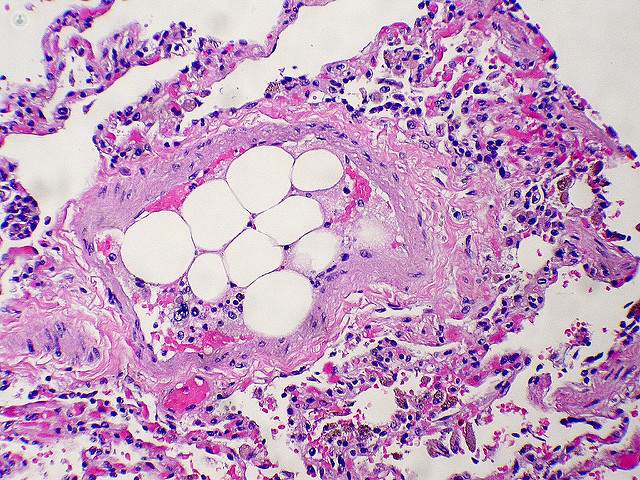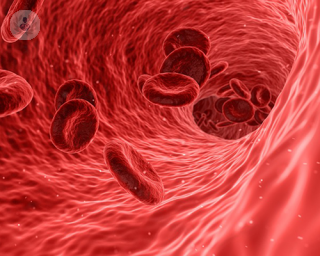Bone marrow cancers
Professor Graham Collins - Haematology
Created on: 11-13-2012
Updated on: 03-28-2023
Edited by: Conor Dunworth
What is bone marrow cancer?
Bone marrow cancer is a form of cancer that forms in the marrow, the spongy tissue found inside your bones. Bone marrow cancer can appear anywhere in the body.
The most common types of bone marrow cancer are:
Multiple myeloma and leukaemia are also known as types of blood cancer, because the job of the bone marrow is to make blood cells.
Cancer that starts in the bone itself is called sarcoma, and is much less prevalent than bone marrow cancer.

What are the symptoms?
Bone marrow cancer usually causes bone pain, bone weakness or fractures. Other symptoms of bone marrow cancer depends on what type of cancer it is:
- multiple myeloma can cause low blood count leading to anaemia, reduced resistance to infections or serious bleeding from minor scrapes or bruises.
- leukaemia can cause symptoms such as fever, persistent tiredness, frequent infections or unintentional weight loss
- lymphoma can cause enlarged lymph nodes, persistent tiredness, weight loss, or chest pain
How is it diagnosed?
If the doctor suspects bone marrow cancer from a clinical examination and asking about your symptoms and medical history, they will examine your bone marrow to see if your production of blood cells is normal. There are two methods to achieve this:
- bone marrow aspiration involves using a needle to take a sample of the bone marrow
- bone biopsy is the same procedure as bone marrow aspiration, but also involves removing a small part of bone for testing
What causes bone marrow cancer?
Your risk of developing bone marrow cancer depends on the type of cancer:
- you are more likely to develop multiple myeloma if you have a family history of the condition, you have a high BMI (body mass index), or you are over the age of 65
- the risk factors for leukaemia depend on the type of leukaemia you have, but common to all types is exposure to radiation or chemotherapy, a family history of the condition, or conditions such as Down’s syndrome.
- Lymphoma is more likely if you are exposed to radiation or chemotherapy, you have a high BMI, or you have a condition such as HIV, rheumatoid arthritis, or lupus
How is it treated?
There are a wide range of treatments for bone marrow cancer, including chemotherapy, radiotherapy, immunotherapy, and biological therapy. In some cases, you may need a strong dose of chemotherapy combined with a stem cell transplant to produce blood in the future.
The most suitable treatment depends on each individual patient and the particular form of bone marrow cancer you have.










